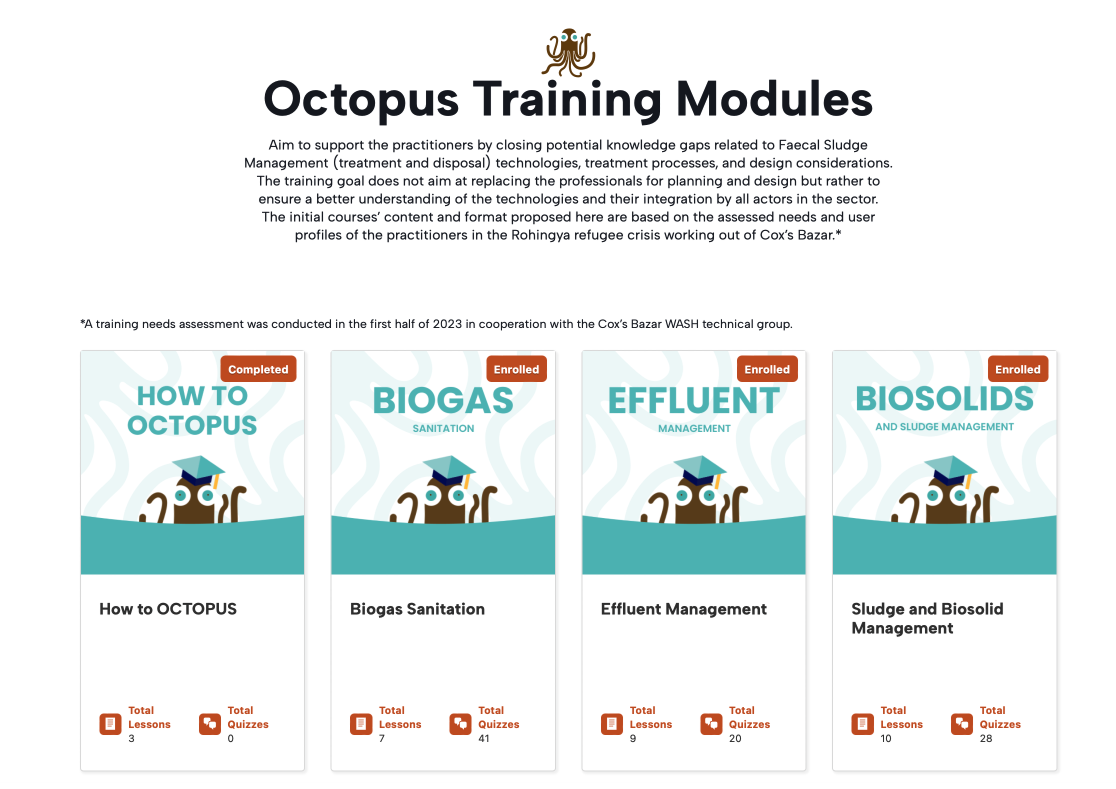


UPM Umwelt-Projekt-Management GmbH (UPM) is pleased to announce the publication of seven training manuals on Sanitation, Fecal Sludge Management and Waste-to-Value technologies and approaches in informal settlements and camp settings. The manuals, updated earlier this year, have been developed based on a series of training workshops organized by UPM in Cox’s Bazar (CXB) and attended by 125 people from 35 organizations of the CXB WASH Technical Working Group (hereafter Working Group) in total. The training sessions took place within the framework of the Assignment from the Bill & Melinda Gates Foundation for Technical Assistance for Sanitation/Fecal Sludge (FS) Management in the Rohingya Refugees’ Crisis in Bangladesh. Due to the Covid-19 Crisis, the implementation of the training had stopped during Q1 2020.
The program of the training series was based on a training-needs-assessment organized with the Working Group. The objectives were to provide trainees with an introduction to new concepts, technologies and a reasonable ability to plan, design and monitor a sanitation project as an output based on/or including innovative FSM and Waste-to-value solutions. The content provided in those manuals cannot replace formal engineering training.
The published manuals include the following topics and can be download from the Water, Sanitation & Hygiene Gateway of the Gates Open Research website:
In the last 15 years, a great amount of innovation has happened in the field of Sanitation and FSM in all corners of the world. With the 3R and inclusiveness principles in mind, these technical and business innovations are bringing sanitation to the 21st century. Unfortunately, access to knowledge about those is still limited for professional WASH experts, in particular in the Humanitarian sector. We hope that, with the training and now with the manuals, we are helping to fill this gap and supporting more refugees accessing improved sanitation.” said Heinz-Peter Mang, UPM Technical Director.
For more information regarding the manuals or UPM Consulting Services, please check our website or contact :
Martin Dilger, mdilger(at)upm-cdm.eu, +49 – (0)89 – 1222197 ext 50 (Germany)
Marie Reysset, mreysset(at)upm-cdm.eu, +86 10 64680500 (China)


